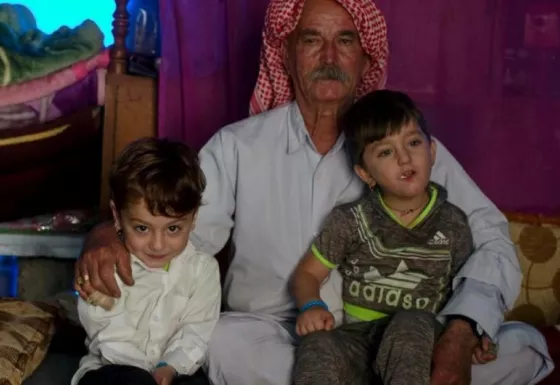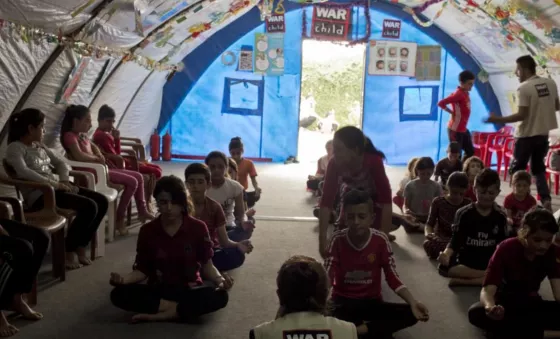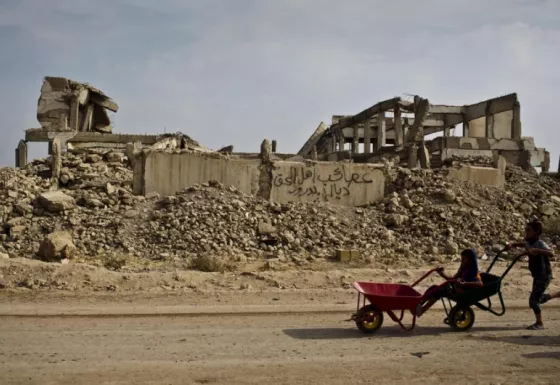The world watched in horror as the Yazidis were subjected to the worst of ISIS brutality. Thousands were killed while the women and girls who were spared were forced into sexual slavery.
An attack on the district of Sinjar forced thousands from their homes, with many families fleeing up to Sinjar Mountain with no food, water or medical care.
The communities remained under siege for months until they were finally evacuated.
Since then, most Yazidis have lived in displacement camps in northern Iraq, where War Child is working.
“We were on the mountain, there wasn’t any food to eat, and there was nowhere to sleep” - Sa'afi, 13



